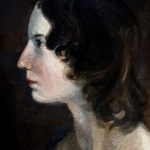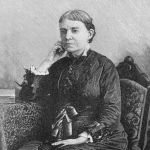All the dead kings came to me
At Rosnaree, where I was dreaming,
A few stars glimmered through the morn,
And down the thorn the dews were streaming.
And every dead king had a story
Of ancient glory, sweetly told.
It was too early for the lark,
But the starry dark had tints of gold.
I listened to the sorrows three
Of that Eire passed into song.
A cock crowed near a hazel croft,
And up aloft dim larks winged strong.
And I, too, told the kings a story
Of later glory, her fourth sorrow:
There was a sound like moving shields
In high green fields and the lowland furrow.
And one said: ‘We who yet are kings
Have heard these things lamenting inly.’
Sweet music flowed from many a bill
And on the hill the morn stood queenly.
And one said: ‘Over is the singing,
And bell bough ringing, whence we come;
With heavy hearts we’ll tread the shadows,
In honey meadows birds are dumb.’
And one said: ‘Since the poets perished
And all they cherished in the way,
Their thoughts unsung, like petal showers
Inflame the hours of blue and grey.’
And one said: ‘A loud tramp of men
We’ll hear again at Rosnaree.’
A bomb burst near me where I lay.
I woke, ’twas day in Picardy.


















Comment form: